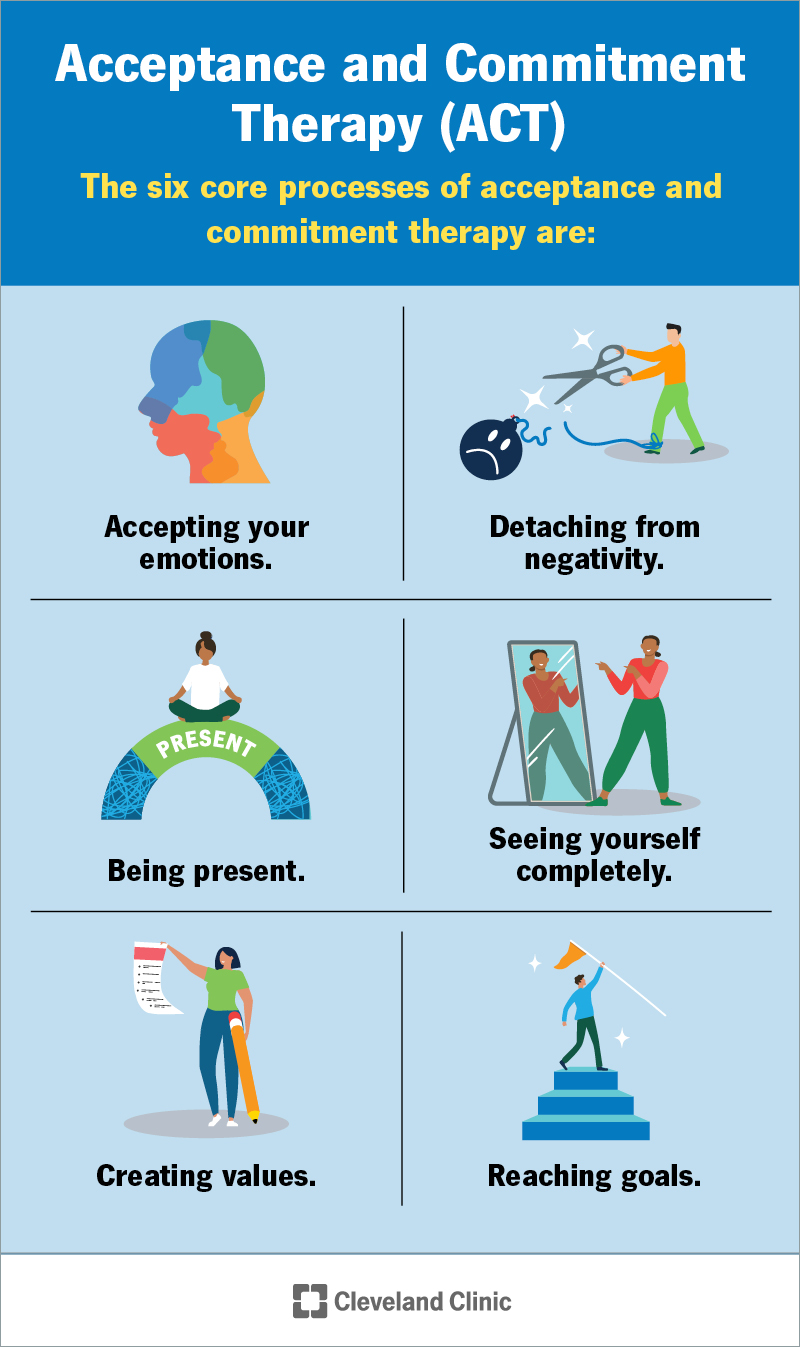Research-driven counselling for anxiety with compassionate guidance
Research-driven counselling for anxiety with compassionate guidance
Blog Article
Checking Out Different Strategies in Therapy for Stress And Anxiety Disorder for Long-term Adjustment
When taking on anxiousness problems, it's important to explore a selection of therapy strategies. Each approach provides special insights and devices to aid you manage your signs and symptoms successfully. You might discover that incorporating techniques can produce the most effective results. Nonetheless, comprehending the subtleties of these strategies is key to promoting long-term change. What happens if the right combination could release a brand-new degree of emotional well-being for you?
Comprehending Stress And Anxiety Problems: A Short Review
Anxiety disorders, which influence millions of individuals worldwide, can substantially influence every day life. You may experience frustrating feelings of worry or worry that seem unmanageable. These feelings can cause physical signs and symptoms like an auto racing heart, sweating, or perhaps dizziness. Common sorts of stress and anxiety problems include generalised stress and anxiety disorder, panic attack, and social anxiousness condition. Each has one-of-a-kind indications, yet they all share a tendency to disrupt your regular and relationships.Understanding the origin causes of your stress and anxiety is vital. It could come from genes, mind chemistry, or life experiences. Recognizing your triggers can assist you manage your responses much better. It is essential to keep in mind that you're not the only one in this struggle. Lots of people face similar difficulties, and seeking assistance is a strong action toward sensation better. By discovering anxiousness conditions, you're currently on the path to understanding and handling your condition better.
Cognitive-Behavioral Therapy: Challenging Adverse Idea Patterns

Identifying Adverse Thought Triggers
Identifying the specific triggers behind your negative thoughts can be crucial in handling anxiety when you come across moments of distress. Beginning by taking note of circumstances that provoke feelings of concern or concern. Is it a congested area, an upcoming deadline, or a conversation with specific individuals? Write down these circumstances in a journal. This will aid you recognize patterns in your thinking. Notice physical sensations that accompany your negative ideas, like an auto racing heart or tightness in your chest. By identifying these triggers, you acquire insight into what's sustaining your stress and anxiety. Comprehending these connections is the primary step in testing those thoughts and ultimately restoring control over your psychological responses.

Changing Ideas With Positives
Testing unfavorable thought patterns is a crucial action in transforming your state of mind and decreasing anxiety. You might usually discover yourself caught in cycles of insecurity or tragic reasoning. As opposed to letting these thoughts determine your sensations, practice changing them with realistic choices or favorable affirmations. For example, when you believe, "I can't handle this," move it to, "I can take care of difficulties one action at once (Counseling services for anxiety)." This straightforward change can significantly impact your mood. Regularly identifying and countering these negative thoughts helps develop a healthier internal discussion. Bear in mind, it requires time and effort, but constantly exercising this technique can lead to long lasting change, encouraging you to encounter anxiousness with restored self-confidence and strength
Structure Coping Strategies Together
Changing negative ideas is just the beginning of taking care of stress and anxiety properly. To create long-term adjustment, you require to develop coping techniques that empower you. Cognitive-Behavioral Treatment (CBT) aids you determine and test those purposeless thought patterns. With each other, you and your counselor can explore how these ideas impact your sensations and behaviors.Start by creating practical strategies, like journaling or mindfulness exercises, that enable you to confront anxiety head-on. When you face your concerns slowly, you'll find out to respond in different ways.

Mindfulness and Acceptance-Based Approaches: Growing Present-Moment Recognition
As you navigate the intricacies of anxiety, incorporating mindfulness and acceptance-based strategies can substantially improve your capacity to grow present-moment recognition. By concentrating on the here and currently, you'll discover that you can observe your ideas and sensations without judgment. This technique assists you recognize your stress and anxiety without really feeling overwhelmed by it.Engaging in mindfulness exercises, such as deep breathing, body scans, or directed meditations, allows you to ground on your own in your existing experience. Acceptance-based methods motivate you to welcome your emotions instead than deal with against them. When you accept your feelings, they shed their power over you.Incorporating these techniques into your daily routine can change how you react to anxiety. You'll create resilience and discover to navigate demanding circumstances with better ease. Eventually, cultivating present-moment awareness lays the structure for long-term adjustment, encouraging you to lead a much more satisfying life.
Direct Exposure Treatment: Confronting Concerns Gradually
Exposure therapy helps you confront your fears in a gradual means, making it less frustrating. You'll learn strategies to encounter anxiety-provoking scenarios action by step, while also building coping techniques to manage your responses. This strategy encourages you to take control and decrease anxiety with time.
Steady Exposure Techniques
When encountering anxiousness, slowly confronting your fears can be an effective method to restore control. This technique, referred to as gradual exposure, involves gradually revealing on your own to the circumstances or things that cause your stress and anxiety. Beginning with less challenging scenarios and slowly work your way up to more difficult ones. As an example, if you're scared of public speaking, you could begin by speaking before a mirror, then progress to sharing thoughts with a buddy, and ultimately address a tiny team. Each action assists desensitize you to the worry, building your self-confidence over time. Remember, it's vital to speed yourself and commemorate tiny triumphes as you relocate via this process, reinforcing your ability to take care of anxiety effectively.
Building Coping Methods
Structure reliable coping strategies is vital for taking care of anxiety, particularly as you face your anxieties progressively. One effective approach is direct exposure therapy, where you start by facing your worries in a regulated manner. Start with less intimidating situations and gradually work your method up to more difficult circumstances. This gradual direct exposure aids desensitize you to stress and anxiety sets off, making them much less overwhelming.Incorporate relaxation techniques, such as deep breathing or mindfulness, to relax your mind during exposure. Track your development, commemorating little success along the method to improve your confidence. Keep in mind, it's alright to take your time; the goal isn't perfection however steady improvement. By developing these strategies, you'll encourage on your own to navigate stress and anxiety and welcome life more fully.
Psychodynamic Therapy: Discovering Origin of Anxiousness
Psychodynamic therapy explores the subconscious mind, revealing the source of your stress and anxiety - Counseling services for anxiety. By examining your ideas, sensations, and past experiences, this technique helps you discover underlying problems and unresolved problems that might add to your present stress and anxiety. You'll collaborate with a specialist to check out childhood experiences, partnerships, and emotional patterns that form your actions today.As you gain understanding into these much deeper layers of your subconscious, you'll start to acknowledge exactly how previous events affect your present habits. This understanding can result in catharsis, enabling you to process feelings you could have suppressed.Through the healing relationship, you can also identify defense mechanisms that may have developed in time, offering a clearer path to alter. Ultimately, psychodynamic therapy furnishes you with the tools to resolve your anxiety at its core, promoting enduring improvement in your emotional health
Alternative and integrative Strategies: Combining Methods for Greater Effectiveness
Incorporating various healing techniques can improve your trip towards taking care of anxiety better. By integrating components from cognitive-behavioral treatment, mindfulness methods, and alternative strategies, you can create a tailored technique that resolves your unique needs. You could make use of cognitive-behavioral methods to test unfavorable idea patterns while incorporating mindfulness exercises to ground yourself in the existing moment.Additionally, discovering holistic methods such as yoga or reflection can promote relaxation and decrease stress and anxiety symptoms. This mix permits you to establish greater self-awareness and resilience.Experimenting with these varied techniques can help you discover what reverberates most with you. Keep in mind, it's regarding finding a harmony that functions, rather than sticking to a solitary technique. This integrative method not just uses instant relief yet likewise fosters long-lasting skills for handling anxiousness, encouraging you to recover control over your life.
The Function of Support Systems: Building Durability Through Connection
While it could appear that handling anxiety is a singular trip, having a strong support group can play a crucial role in your durability. Bordering yourself with compassionate buddies, family members, or support groups develops a safe area where you can honestly share your feelings and experiences. You advise on your own that you're not alone in this struggle.These partnerships supply inspiration and can provide useful coping techniques that have actually functioned for others when you link with others. It's likewise an opportunity to gain point of view; buddies can assist you see scenarios in a different way, lowering feelings of isolation.Moreover, emotional support fosters a feeling of belonging, which can significantly relieve anxiousness symptoms. By leaning on your support group, you can develop strength and tackle challenges extra properly. Keep in mind, connecting for aid is an indicator of toughness, and it can make all the distinction in your trip toward managing anxiety.
Frequently Asked Inquiries
What Are the Usual Symptoms of Stress And Anxiety Problems?
You could experience uneasyness, tiredness, difficulty concentrating, impatience, muscle stress, and rest disturbances. Physical signs and symptoms can include fast heart beat, sweating, and trembling. Recognizing these signs early can help you seek ideal support and treatment.

How Long Does Therapy Typically Last for Anxiousness Problems?
Treatment for anxiety disorders typically lasts anywhere from a few weeks to several months. It truly depends on your specific needs, progression, and the methods your specialist uses to assist you manage your stress and anxiety effectively.
Can Drug Be Used Along With Treatment for Anxiety?
Yes, medication can definitely be utilized alongside treatment for anxiousness. Integrating both approaches often boosts treatment performance, helping you take care of symptoms while checking out underlying concerns with therapy. Always consult your doctor for tailored advice.
Exist Self-Help Strategies for Managing Stress And Anxiety?
Yes, there are several self-help approaches for handling anxiousness. You can exercise mindfulness, engage in regular workout, preserve a well balanced diet regimen, develop a routine, and utilize deep breathing techniques to help in reducing anxiety signs efficiently.
Exactly how Do I Know if I Need Expert Aid for Anxiety?
You should consider looking for professional help for anxiousness if it interferes with day-to-day life, causes significant distress, or if self-help techniques aren't working. Count on your impulses; reaching out can result in better coping skills and support. Common kinds of anxiousness disorders consist of generalised anxiousness problem, panic condition, and social stress and anxiety condition. When you run into minutes of distress, identifying the particular triggers behind your negative thoughts can be important in handling anxiety. Replacing unfavorable ideas is just the start of handling anxiousness properly. By analyzing your ideas, feelings, and past experiences, this strategy aids you discover underlying disputes and unsolved problems that might contribute to your current anxiousness. It's additionally a possibility to acquire perspective; buddies can help you see scenarios in a different way, decreasing sensations of isolation (Counseling services for anxiety).Moreover, psychological support promotes website a sense of belonging, which can significantly alleviate stress and anxiety symptoms
Report this page